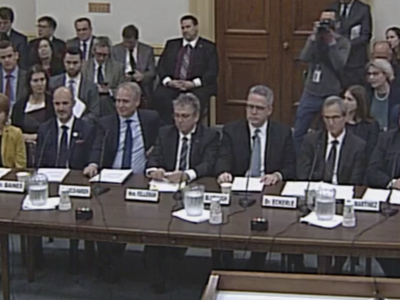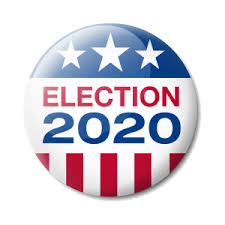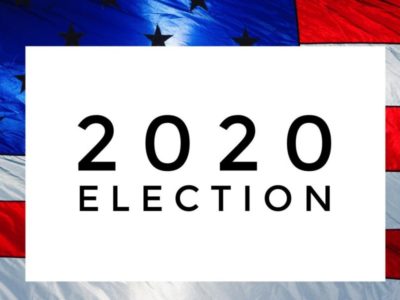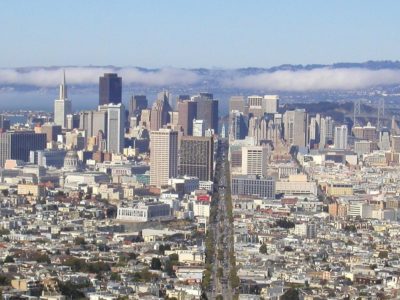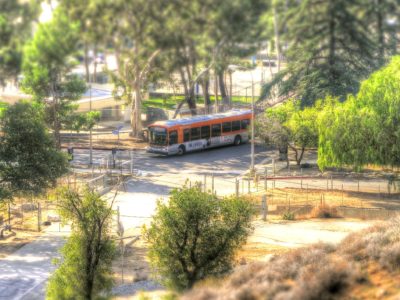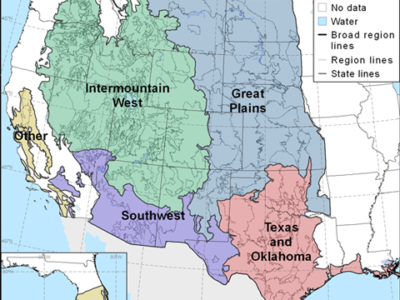How Can We Achieve a Carbon-Neutral Transportation Sector by 2050?
Developments from a hearing before the House Subcommittee on Environment and Climate Change
Today, the Subcommittee on Environment and Climate Change of the House Committee on Energy and Commerce held a hearing entitled “Building a 100 Percent Clean Economy: Solutions For Planes, Trains and Everything Beyond Automobiles.” As the title suggests, the Subcommittee’s hearing sought to probe opportunities to decarbonize the transportation sector while focusing on modes of transportation other than light-duty vehicles (or “LDVs”), such as medium- and he...
CONTINUE READINGIs Trump’s California Climate Tantrum Bad Politics?
Here's hoping so
Apparently it hasn't been enough for the Trump Administration to roll back federal climate pollution standards for cars and power plants, announce its intent to withdraw from the Paris Agreement, promote coal usage even in the face of contrary market forces, and embrace expanded oil and gas drilling on public lands. As my colleague Ann Carlson describes in a blog post today, the federal government is also now in a full-blown war against the ability of states to tackle ...
CONTINUE READINGThe Trump Revenge Against California Continues
DOJ Sues the State for Its Cap-and-Trade Agreement with Quebec
The Trump attack on California's climate policies has entered a new phase. In addition to revoking the state's permission to regulate tailpipe emissions from cars, investigating auto makers for antitrust violations for cooperating with California on reducing car emissions, threatening to revoke highway funds from the state for Clean Air Act violations while simultaneously taking away the state's best tool for cleaning up its air, and threatening to sue San Francisco fo...
CONTINUE READING2020 in the Courts: A Preview
Some major new cases will be filed; older ones will result in major decisions.
There are going to be some significant environmental cases over the next year. In addition, some important new cases will be filed now or in the near future, which may have produced some interesting rulings. It will probably take more than a year, however, for some of the big new cases down the turnpike to result in their first level of judicial opinions, let alone reach completion. The Supreme Court. The Court agreed last spring to hear two environmental cases thi...
CONTINUE READINGWhat Do the Candidates’ Climate Proposals Tell Us?
There is a big disconnect between climate proposals and political reality.
Some people were upset because there wasn't a question about climate change at the last Democratic debate. Admittedly, that's a lost opportunity to highlight the importance of the issue. But the significance of the candidates' various positions on climate change is limited. Let me start with what they don’t tell us. The main thing they don’t tell us is what climate policies to expect if one of the seemingly countless Democratic candidates wins the White House. B...
CONTINUE READINGClosing Downtown Market Street to Cars Is a Step in the Right Direction
The San Francisco Municipal Transportation Agency voted yesterday to approve a plan banning private automobiles on the downtown stretch of Market Street east of 10th Street. This section, one of the city’s busiest, will only be accessible to Muni vehicles, taxis, bicycles, and pedestrians (cars will still be able to cross Market). Commercial loading will be allowed during certain hours, and ride-share zones will be limited to side streets. The city also plans to invest...
CONTINUE READINGLA Metro’s Transit to Parks Strategic Plan
A beneficial but incomplete solution to address lack of access to open spaces for disadvantaged communities
I previously wrote about the potential to generate greater support for environmental initiatives, by improving community engagement with the natural environment. One mechanism to improve community engagement in this manner is quite simple: make it easier for people to access parks and open spaces by public transit. Access is a widespread issue in Los Angeles, as many residents live in communities without a local community park in their neighborhood. These residents ar...
CONTINUE READING“If Present Trends Continue….”
To paraphrase Socrates, "the unexplained projection is not worth giving."
You often see forecasts like this: “If present trends continue, electric vehicles will be X% of the auto fleet by 2035.” But this doesn’t mean much without explanation: what “trends” and “continued” in what way? The Energy Information Agency is a major culprit in that respect -- they provide lots of projections but don't unpack any of the assumptions. A press announcement or executive summary obviously can’t include all the technical details, but at l...
CONTINUE READINGEnvironmental Law Centers — Western version
It’s not just on the coasts where law schools works on sustainability.
This is part of an occasional series on the work of environmental law centers. My goal in this series is to highlight one of the ways that law schools work for the public interest, not just on the coasts but throughout the country. Here, I’ll focus on the Interior West -- the plains, mountains, and deserts west of the Mississippi and east of the Sierras. Water is a pervasive concern in that part of the country. Colorado’s Getches Wilkinson Center has held conven...
CONTINUE READINGLights Out, Everybody’s Home
Protecting California’s Most Vulnerable from Climate Effects
Today, rather than walking to campus, I’m home learning the features of Zoom Conference to conduct meetings and classes remotely: UC Berkeley’s campus is shut for its second day in a row, as Pacific Gas and Electric seeks to minimize risk of a wildfire (and associated liability) in the present high wind conditions. Even as I improvise my way through the work week, I’m aware that my climate inconveniences are minor: I’m healthy; my home is solar-powered; local wea...
CONTINUE READING



